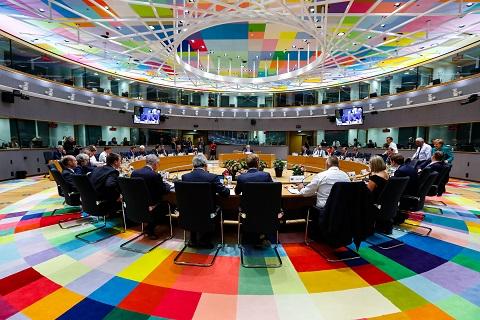
The European Commission (EC) has pledged a coordinated testing protocol for travelers, starting with aviation, as part of broader measures aimed at helping Europe better face up to the crisis.
“The commission is working to ensure that travel within Europe is safe both for travelers and for their fellow citizens,” the EC said Oct. 28 as it unveiled a broad set of measures to step up the fight against the novel coronavirus, as infection rates spiral across the region.
“The European Union Aviation Safety Agency [EASA] and the European Center for Disease Control and Prevention [ECDC] are working on a testing protocol for travelers, to be used by public health authorities, airlines and airports to help the safe arrival of passengers,” the EC said, adding it would work with member-states and agencies on a common approach to quarantine practices, with inputs from the ECDC to be presented in November.
The air transport industry worldwide has been urging governments to implement a widescale testing program under the consensus that it would help get air travel moving again, replacing the inconsistent national travel restrictions and quarantines that discourage potential travelers.
In Europe, the recovery in air travel peaked in the summer, and demand has been declining since. Eurocontrol said traffic in its network was 56.6% down on 2019 levels on Oct. 28.
“Concretely, the measures aim to better understand the virus’ spread and the effectiveness of the response, ramp-up well-targeted testing, bolster contact-tracing, improve preparations for vaccination campaigns and maintain access to essential supplies such as vaccination equipment, while keeping all goods moving in the single market and facilitating safe travel,” the EC said.
The EC is setting aside €100 million ($117 million) to purchase rapid COVID-19 tests and distribute them to member-states, in a move which is not specific to the travel sector.
“Where member-states are applying prior testing requirements to incoming travelers and where no testing capacities are available for asymptomatic travelers in their country of origin, travelers should be offered the possibility to undergo a test after arrival,” the EC said. “If negative COVID-19 tests are to be required or recommended for any activity, mutual recognition of tests is essential, in particular in the context of travel.”
The EC also launched the Re-Open EU website, and said it also is developing an app to provide current information on health measures and travel restrictions in all member-states and some partner countries.
The website includes the color-coded map system based on data analyzed by the ECDC that the EC put forward after demand for travel within Europe began to tail off following a summer recovery. The system is aimed at giving an overview of how the virus is developing in different regions and improving clarity and predictability for airlines. But when it was approved by member-states, airlines said it did not go far enough.
Airlines lobby group Airlines for Europe (A4E) reacted on Twitter to the latest announcement, saying: “Airlines fully welcome today’s European Commission COVID-19 package and stand ready to facilitate safe travel throughout Europe.”





